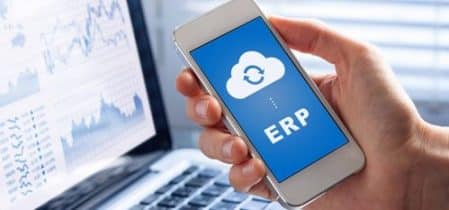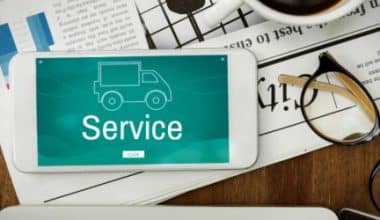To obtain resilience and real-time agility, and also to position yourself for growth, see the industry-leading enterprise resource planning (ERP) cloud solution, which serves as your integrated management of business processes and applications. Although most business professionals are familiar with the word “ERP,” they may not fully comprehend what enterprise resource planning software can achieve for their organizations. We’ll go through what ERP is, its meaning, examples, and the Oracle ERP systems in this article.
ERP systems are so essential for the management of thousands of organizations of all sizes and in a variety of industries. ERP is as necessary to these businesses as electricity is to keep the lights on.
What are ERP Systems
An enterprise resource planning (ERP) system can be thought of as the glue that holds a huge company’s various computer systems together. Without an ERP solution, each department’s systems will focus on its own needs, while each department still has its own system. But with ERP software, all of the systems can be accessed through a single application with a single interface.
ERP software also makes it easier for different departments to communicate and exchange information with the rest of the organization. It gathers data on the activity and state of various divisions and makes it available to other portions so that it can be used profitably.
ERP Systems Meaning
ERP stands for enterprise resource planning, and it is also a sort of software that businesses use to handle day-to-day operations like accounting, procurement, project management, risk management, and compliance, and supply chain operations. Enterprise performance management software, which helps plan, budget, predict, and report on an organization’s financial results, is included in a complete ERP suite.
Simply say, an ERP system facilitates an organization’s people, processes, and technology to work together.
ERP Systems Examples
Many ERP software systems are beneficial to businesses because they assist them in implementing resource planning. By unifying all of the operations required to manage their businesses into a single system. Below are examples of ERP systems.
#1. Oracle Cloud ERP
The first ERP systems examples we’ll look at is presumably one you’ve heard of. Oracle ERP Cloud, is a modern, dynamic program that is used by a wide spectrum of customers. To automate daily tasks, cloud applications using artificial intelligence (AI) and machine learning.
You can customize this adaptable tool to fulfill a variety of requirements. Any company can utilize this tool, regardless of size, industry, or location. Financial services, healthcare, higher education, manufacturing, and retail are among their core verticals.
#2. Acumatica
Small and medium-sized businesses will benefit from Acumatica. Distribution, manufacturing, service sectors, retail and e-commerce, construction, agriculture, chemicals, FMCG, and transportation are among Acumatica’s specialties. This tool supports both SaaS (cloud-based) and on-premise deployment methods.
Self-service reporting, document management, and approval workflows are among the system’s features. It also has built-in Microsoft Excel and Power BI features for data analysis. All of the features are completely integrated and built with Microsoft’s standard tools.
#3. BizAutomation
Our next ERP software example is a comprehensive cloud program that prides itself on covering all company processes in a single system. Small and medium-sized businesses in the wholesale, retail, e-commerce, services, distribution and manufacturing industries are served by BizAutomation. It employs a hybrid cloud strategy that includes a private solution cloud that is a tier 1 SOC and AICPA certified data center, as well as a public cloud for data redundancy.
#4. SAP S/4 HANA
SAP S/4 HANA is a cloud ERP solution with embedded analytics, robot process automation (RPA), artificial intelligence (AI) capabilities, and more that revolutionizes business processes. To assist firms in evolving with their marketplace. The system also makes use of cutting-edge technology, big data, and industry-specific requirements.
It’s geared toward large companies and comes with a 14-day free trial that includes the Fiori user interface, role-based guided tours, capabilities, and workflows.
#5. NetSuite
NetSuite is a leading cloud-based ERP software that’s geared for fast-growing, dynamic enterprises, and it’s the last on our list of enterprise resource planning examples. Oracle NetSuite ERP is a mission-critical process management system that is scalable and adaptable.
Examples of Large Companies Using ERP System
- Amazon: Systems Analysis and Program Development is the ERP software used by Amazon (SAP). SAP has grown from a modest startup to a global leader in business software, so it’s no wonder Amazon chose it to handle its operations.
- Starbucks; Starbucks makes use of Oracle ERP, a cloud-based software system for automating back-office processes and day-to-day operations.
- Toyota Industries Corporation is the parent business of Toyota. It desired to broaden its global reach in order to provide high-quality services such as greater operational management accuracy, a paperless system, shorter work hours, and more overall efficiency. As a result, Toyota selected Microsoft Dynamics 365 for the project.
Oracle ERP Systems
The Oracle ERP is currently one of the most powerful participants in the ERP sector. Oracle ERP systems is a comprehensive suite of applications that enables businesses to make better business decisions while increasing efficiency and lowering costs. Organizations can benefit from cloud technology by using Oracle ERP’s cloud solution to gain faster time to value while also increasing scalability and growth. When compared to traditional on-premise implementations, businesses can implement new functionality faster and more reliably.
Common Oracle ERP Systems Types
Businesses benefit from Oracle ERP because it makes reporting more controllable and adaptable. Companies may immediately acknowledge data requests without relying on an IT specialist or department thanks to improved reporting features. The key to a successful ERP implementation is finding the best certified Oracle technology partner. Just like the examples let’s see the most beneficial oracle ERP system types for all businesses.
#1. Oracle ERP Financials
An ERP financial module is one of the most critical ERP modules to have. Financial data influences all sections of a corporation, regardless of how each one operates. The Oracle ERP system’s financial module provides financial capabilities such as modern finance, spending management, accounting engines, revenue management, and more. The accounting hub cloud, financials cloud (which includes costs and budgetary control), and Oracle Revenue Management Cloud are the three services in this Oracle module.
#2. Manufacturing Oracle ERP
The Oracle ERP manufacturing is another critical ERP type that every company requires. For incoming inventory estimates and order fulfillment operations, businesses must always know how much supply is left.
As part of the supply chain management system, this ERP module’s purpose is to provide complete inventory management and streamline production cycles.
#3. Procurement Oracle ERP
Manufacturing operations can quickly collapse if time is spent on fragmented business systems. As well as onerous manual processes rather than strategic planning. The Oracle ERP Procurement module is a critical ERP solution that all businesses require in order to improve procurement operations while also increasing profits.
This module provides purchasing solutions that streamline procure-to-pay activities while enforcing negotiated supplier pricing. It also allows for updated procurement solutions by automating invoice validation through full interaction with accounts payable.
What Separates CRM and ERP, and How Do They Work Together?
Although the entire organization will eventually rely on both ERP and CRM systems, the main distinction between the two is that while CRM is utilized by the sales and customer care departments, ERP is largely for financial data and the finance department.
Are ERPs like Excel?
Excel is widely used by manufacturing organizations because it is accessible, simple to use, and considered to be a cost-effective tool for organizing and planning business operations. Excel is used for a variety of functions including scheduling, inventory management, and data analysis.
Does Python Have an Erp System?
Due to the availability of numerous libraries and frameworks, the answer is yes, it can be used to design ERP software. Python is the finest tool for the construction of an ERP system because it has many functionalities.
What Is the Best Language for Erp?
Python-based ERP Programming Language and Javascript were both used in the creation of The ERP Next. It is software that is supported with an intuitive user interface to ensure accessibility. For warehouses, retail outlets, and large enterprises to meet their enterprise resource planning objectives, it is an economical, strong, and dependable solution.
Are Erps Merely Databases?
ERP’s primary function is to automate corporate activities while also providing insights and internal controls. To do this, it uses a centralized database to gather data from several departments, including accounting, manufacturing, supply chain management, sales, marketing, and human resources (HR)
FAQs
What is ERP and how does it work?
An ERP is a business application that uses a central database to collect data from several departments inside a firm. Accounting, inventory management, and customer relationship management are all linked within the ERP. An ERP allows businesses to store, view, manage and understand data in a single location.
Who uses ERP?
ERP is a software program that helps organizations in the supply chain keep track of all the moving pieces of manufacturing and distribution. ERP, on the other hand, can be used in a variety of industries, including healthcare, charitable organizations, construction, and hospitality.
What is the difference between ERP and Oracle?
Oracle’s ERP differs from SAP’s ERP in that Oracle’s ERP is more focused on financial data mobility inside an enterprise firm. The software’s features enable businesses to combine data, analyze it, and alter it based on their requirements.







1 comment
Merci pour cette bonne définition de ce qu’est un système ERP et des différentes modalités/options Cloud que l’on peut trouver sur le marché. Actuellement, je travaille avec le logiciel SAP Hana, mais connaître les autres est toujours nécessaire, car il faut être au courant des différentes fonctionnalités dont ils disposent et des tendances de ce secteur. Salutations!